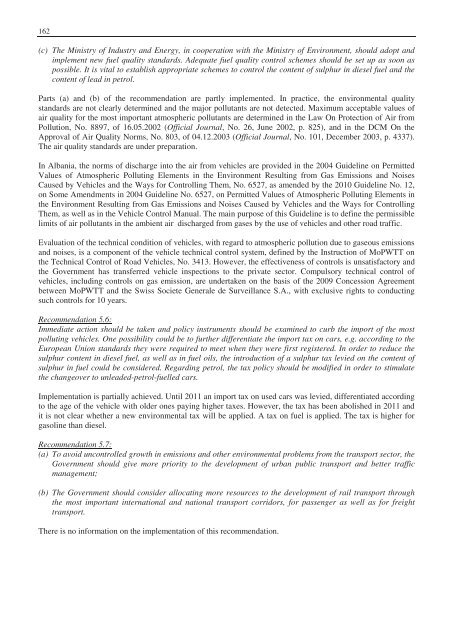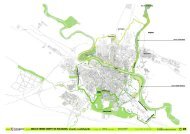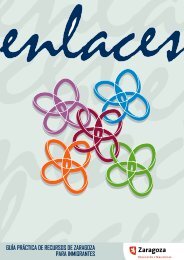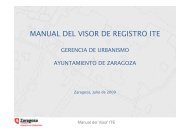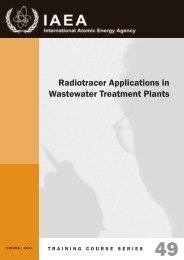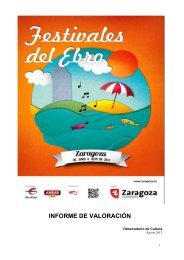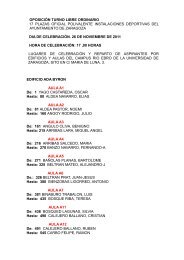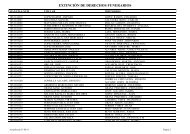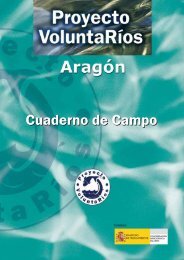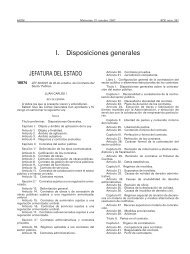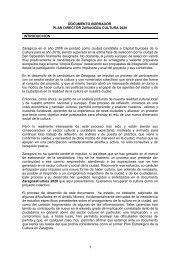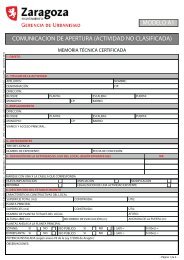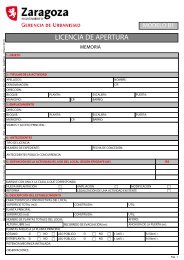Second Environmental Performance Review of Albania
Second Environmental Performance Review of Albania
Second Environmental Performance Review of Albania
Create successful ePaper yourself
Turn your PDF publications into a flip-book with our unique Google optimized e-Paper software.
162(c) The Ministry <strong>of</strong> Industry and Energy, in cooperation with the Ministry <strong>of</strong> Environment, should adopt andimplement new fuel quality standards. Adequate fuel quality control schemes should be set up as soon aspossible. It is vital to establish appropriate schemes to control the content <strong>of</strong> sulphur in diesel fuel and thecontent <strong>of</strong> lead in petrol.Parts (a) and (b) <strong>of</strong> the recommendation are partly implemented. In practice, the environmental qualitystandards are not clearly determined and the major pollutants are not detected. Maximum acceptable values <strong>of</strong>air quality for the most important atmospheric pollutants are determined in the Law On Protection <strong>of</strong> Air fromPollution, No. 8897, <strong>of</strong> 16.05.2002 (Official Journal, No. 26, June 2002, p. 825), and in the DCM On theApproval <strong>of</strong> Air Quality Norms, No. 803, <strong>of</strong> 04.12.2003 (Official Journal, No. 101, December 2003, p. 4337).The air quality standards are under preparation.In <strong>Albania</strong>, the norms <strong>of</strong> discharge into the air from vehicles are provided in the 2004 Guideline on PermittedValues <strong>of</strong> Atmospheric Polluting Elements in the Environment Resulting from Gas Emissions and NoisesCaused by Vehicles and the Ways for Controlling Them, No. 6527, as amended by the 2010 Guideline No. 12,on Some Amendments in 2004 Guideline No. 6527, on Permitted Values <strong>of</strong> Atmospheric Polluting Elements inthe Environment Resulting from Gas Emissions and Noises Caused by Vehicles and the Ways for ControllingThem, as well as in the Vehicle Control Manual. The main purpose <strong>of</strong> this Guideline is to define the permissiblelimits <strong>of</strong> air pollutants in the ambient air discharged from gases by the use <strong>of</strong> vehicles and other road traffic.Evaluation <strong>of</strong> the technical condition <strong>of</strong> vehicles, with regard to atmospheric pollution due to gaseous emissionsand noises, is a component <strong>of</strong> the vehicle technical control system, defined by the Instruction <strong>of</strong> MoPWTT onthe Technical Control <strong>of</strong> Road Vehicles, No. 3413. However, the effectiveness <strong>of</strong> controls is unsatisfactory andthe Government has transferred vehicle inspections to the private sector. Compulsory technical control <strong>of</strong>vehicles, including controls on gas emission, are undertaken on the basis <strong>of</strong> the 2009 Concession Agreementbetween MoPWTT and the Swiss Societe Generale de Surveillance S.A., with exclusive rights to conductingsuch controls for 10 years.Recommendation 5.6:Immediate action should be taken and policy instruments should be examined to curb the import <strong>of</strong> the mostpolluting vehicles. One possibility could be to further differentiate the import tax on cars, e.g. according to theEuropean Union standards they were required to meet when they were first registered. In order to reduce thesulphur content in diesel fuel, as well as in fuel oils, the introduction <strong>of</strong> a sulphur tax levied on the content <strong>of</strong>sulphur in fuel could be considered. Regarding petrol, the tax policy should be modified in order to stimulatethe changeover to unleaded-petrol-fuelled cars.Implementation is partially achieved. Until 2011 an import tax on used cars was levied, differentiated accordingto the age <strong>of</strong> the vehicle with older ones paying higher taxes. However, the tax has been abolished in 2011 andit is not clear whether a new environmental tax will be applied. A tax on fuel is applied. The tax is higher forgasoline than diesel.Recommendation 5.7:(a) To avoid uncontrolled growth in emissions and other environmental problems from the transport sector, theGovernment should give more priority to the development <strong>of</strong> urban public transport and better trafficmanagement;(b) The Government should consider allocating more resources to the development <strong>of</strong> rail transport throughthe most important international and national transport corridors, for passenger as well as for freighttransport.There is no information on the implementation <strong>of</strong> this recommendation.


